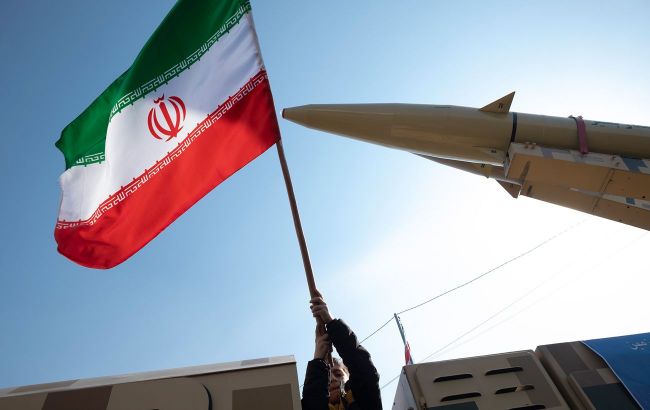Israeli strikes reduce Iran's ballistic missile production - The Washington Post
 Photo: Iran's ballistic missile production is temporarily suspended (Getty Images)
Photo: Iran's ballistic missile production is temporarily suspended (Getty Images)
After the Israeli military strikes on Iran this autumn, the country’s defense industry can now produce only one ballistic missile per week. Previously, factories were producing two missiles of this type per day, reports The Washington Post.
The newspaper’s columnist, David Ignatius, notes that Iran is likely experiencing the most dangerous moment in its modern history. Its proxy armies in Gaza, Lebanon, and Syria have been decimated, and Israeli airstrikes severely damaged its air defense systems.
He also quoted former Israeli Defense Minister Yoav Gallant, who stated in a briefing this week that the goal of Israel’s attacks was to weaken Iran and strengthen Israel and to prevent Tehran from responding forcefully to future strikes. Gallant added that the October 26 bombing of Iran created a "window to act against Iran" before the country developed nuclear weapons.
Ignatius also reminded readers that Israel targeted key components of Iran’s ballistic missile program. In particular, all mixing facilities that produce solid fuel for Iran’s missile forces were destroyed.
According to an Israeli military source, before the October strike, Iran could produce enough solid fuel for two new ballistic missiles per day. Now, production is likely limited to one missile per week, and this shortage is expected to last for an entire year.
Israeli officials believe that over the next two years, Iran will not be able to replenish its limited stock of ballistic missiles significantly.
At the same time, Ignatius notes, Iran’s new vulnerability could push the country to develop a nuclear arsenal in an attempt to deter its opponents, who otherwise cannot be stopped.
"Iran has fuel for a bomb, but US analysts believe it is still many months from being able to build a warhead that could be carried atop a long-range ballistic missile. For all the conflicts that Trump will inherit, the looming standoff between Israel and Iran might be the most urgent and dangerous," the WP said.
Ignatius added that the US decision on how to exploit Iran's weakness — whether through negotiations for a nuclear deal or, if that fails, through decisive military action — will be made by the newly elected President Donald Trump.
The columnist reminded that in November, when asked about the possibility of war with Iran after he takes office on January 20, Trump ominously told Time magazine that “anything can happen.”
Israel-Iran strikes
On October 1, Iran launched a massive attack on Israel, firing around 180 ballistic missiles at the country. Most of the targets were intercepted by Israel’s Iron Dome air defense system.
Tehran stated that the strike was retaliation for the elimination of Hamas Political Bureau head Ismail Haniyeh, Hezbollah leader Hassan Nasrallah, and the commander of the Quds Force in Lebanon, Abbas Nilforushan.
In response, on October 26, Israel targeted Iranian military sites.
According to media reports, the IDF strikes crippled Iran’s ballistic missile production and damaged air defense systems around Tehran.
Israeli airstrikes also destroyed two Iranian military bases.
Iran did not retaliate for this attack.
Meanwhile, the IDF is preparing for strikes against Iran’s nuclear facilities after the destruction of Syria’s air defense system.

